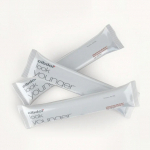Using Collagen for Joint and Muscle Health
Collagen is the most abundant protein in the human body and is a major component of muscles, joints, tendons, ligaments, cartilage, skin, hair and nails. As we age, our bodies produce less and less collagen, leading to wrinkles, sagging skin, joint pain and injuries. Supplementing with collagen has become increasingly popular due to its potential benefits for joint and muscle health. This article will explore the science behind collagen supplements and their effectiveness for improving mobility, flexibility and athletic performance.
Contents:

What is Collagen and Why Do Our Bodies Need It?
Collagen is a fibrous structural protein made up of amino acids including glycine, proline and hydroxyproline. It makes up nearly 30% of the total protein content in the human body and about 75% of our skin. Collagen provides structure and stability to connective tissues throughout the body including:
- Tendons - Attach muscles to bones
- Ligaments - Connect bones at joints
- Cartilage - Covers bones at joints to allow smooth movement
- Bone matrix - Supports bone mineralization
- Intervertebral discs - Allow spine flexibility
Collagen production starts declining around age 25 and this accelerates with aging. Loss of collagen leads to reduced elasticity and strength in connective tissues. This can translate into age-related symptoms like joint stiffness, muscle loss, decreased mobility and increased risk of injuries. Consuming collagen supplements may help counteract the decline in collagen production.
Collagen Supplements for Joint Health
Joint pain and stiffness are common complaints, especially with aging. Osteoarthritis involves degradation of cartilage, which is comprised mostly of type II collagen. Several studies indicate that collagen supplements may improve joint pain and flexibility:
- In a 24-week study, athletes taking collagen hydrolysate experienced less joint pain during activity compared to a placebo group. They also had improved mobility and flexibility of the knee joint.
- A 12-week study had osteoarthritis patients take either a placebo or collagen tripeptide supplement. The collagen group reported significant improvements in joint pain during rest, movement and daily activities compared to placebo.
- Multiple studies reveal collagen supplements increase collagen density in cartilage and reduce inflammation. This may slow cartilage breakdown in osteoarthritis.
The suggested mechanisms involve collagen hydrolysates stimulating cartilage-producing cells called chondrocytes. Collagen supplements may also reduce inflammation that contributes to cartilage degeneration. The amino acids in collagen, including glycine and proline, are required building blocks for manufacturing healthy cartilage.
Collagen for Muscle Mass and Performance
Muscles are comprised of collagenous tissue. Age-related muscle loss (sarcopenia) involves decreased synthesis of both muscle proteins and collagen. Some research indicates supplementing with collagen may support muscle mass and function:
- In a 12-week study, men taking collagen peptide powder gained significantly more muscle mass and strength compared to a placebo group.
- Another study had subjects take collagen peptides for 6 months. The collagen group increased fat-free mass and muscle strength more than placebo.
- Athletes consuming collagen supplements experienced reduced joint pain during activity and decreased markers of muscle damage after exercise compared to athletes not taking collagen.
Collagen may support muscles by providing amino acids used to synthesize new muscle tissue. It may also facilitate repair and growth of muscle fibers damaged by exercise. More human studies are needed to confirm collagen's effects on muscle mass and performance.
Collagen Sources: Marine and Bovine
Collagen supplements are derived from animal tissues including fish skin/scales or bovine hide/bones. Marine collagens (types I and III) come from fish skin or scales while bovine collagens (types I and III) come from cow hides and bones.
Studies indicate both marine and bovine collagen are absorbed and incorporated into human collagenous tissues. However, some research suggests marine collagen peptides are absorbed up to 1.5 times more efficiently due to a lower molecular weight profile. This leads to higher blood levels of collagen amino acids.
Both marine and bovine collagen supplements appear effective for joint, muscle and skin health. Marine collagen may provide additional benefits for cardiovascular health by reducing arterial stiffness. Individuals who avoid bovine products due to dietary preferences or concerns about mad cow disease can safely take marine collagen supplements.
Collagen Dosage Recommendations
Studies demonstrating benefits use collagen doses ranging from 2.5g to 10g daily. Most collagen supplements come in powder form for flexibility with dosing:
- For general wellness, 2.5-5g daily is sufficient.
- For athletic performance and recovery, 5-10g daily may provide greater benefits.
- It's best to split dosing throughout the day for better absorption.
- Taking collagen with vitamin C aids collagen synthesis.
- Effects may take 2-4 weeks to notice at lower doses.
There are currently no established toxicity levels for oral collagen supplementation. However, dramatically exceeding dosage recommendations is not advisable.
Using Collagen for Joint and Muscle Health. Conclusion
Collagen plays an important role in optimal joint, bone, muscle, ligament, tendon and cartilage health. Consuming collagen supplements can counteract age-related decreases in collagen production. Studies indicate benefits for joint pain, muscle mass, athletic performance and injury recovery. Marine and bovine collagens are absorbed efficiently with marine having an edge for bioavailability. For overall wellness, 2.5-5g daily is recommended while athletes may benefit from 5-10g daily. Collagen supplements therefore provide a safe, effective option for maintaining connective tissue integrity and mobility with aging.
Resources used to write this article
Clark, K. L., Sebastianelli, W., Flechsenhar, K. R., Aukermann, D. F., Meza, F., Millard, R. L., ... & Albert, A. (2008). 24-Week study on the use of collagen hydrolysate as a dietary supplement in athletes with activity-related joint pain. Current Medical Research and Opinion, 24(5), 1485-1496. https://www.tandfonline.com/doi/abs/10.1185/030079908X291967
Proksch, E., Segger, D., Degwert, J., Schunck, M., Zague, V., & Oesser, S. (2014). Oral supplementation of specific collagen peptides has beneficial effects on human skin physiology: a double-blind, placebo-controlled study. Skin pharmacology and physiology, 27(1), 47-55. https://www.karger.com/Article/Abstract/351376
Choi, S. Y., Ko, E. J., Lee, Y. H., Kim, B. G., Shin, H. J., Seo, D. B., ... & Kim, B. J. (2019). Effects of collagen tripeptide supplement on skin properties: a prospective, randomized, controlled study. Journal of Cosmetic and Laser Therapy, 21(2), 132-137. https://www.tandfonline.com/doi/abs/10.1080/14764172.2018.1469769
Shaw, G., Lee-Barthel, A., Ross, M. L., Wang, B., & Baar, K. (2017). Vitamin C-enriched gelatin supplementation before intermittent activity augments collagen synthesis. The American journal of clinical nutrition, 105(1), 136-143. https://academic.oup.com/ajcn/article/105/1/136/4569819
Clark, K. L., Sebastianelli, W., Flechsenhar, K. R., Aukermann, D. F., Meza, F., Millard, R. L., ... & Albert, A. (2008). 24-Week study on the use of collagen hydrolysate as a dietary supplement in athletes with activity-related joint pain. Current Medical Research and Opinion, 24(5), 1485-1496. https://www.tandfonline.com/doi/abs/10.1185/030079908X291967
Zdzieblik, D., Oesser, S., Baumstark, M. W., Gollhofer, A., & König, D. (2015). Collagen peptide supplementation in combination with resistance training improves body composition and increases muscle strength in elderly sarcopenic men: a randomised controlled trial. British Journal of Nutrition, 114(8), 1237-1245. https://www.cambridge.org/core/journals/british-journal-of-nutrition/article/collagen-peptide-supplementation-in-combination-with-resistance-training-improves-body-composition-and-increases-muscle-strength-in-elderly-sarcopenic-men-a-randomised-controlled-trial/6B3BBFA816756C2515E61E81D12B6F59
König, D., Oesser, S., Scharla, S., Zdzieblik, D., & Gollhofer, A. (2018). Specific Collagen Peptides Improve Bone Mineral Density and Bone Markers in Postmenopausal Women—A Randomized Controlled Study. Nutrients, 10(1), 97. https://www.mdpi.com/2072-6643/10/1/97
McAlindon T.E., Nuite M., Krishnan N., Ruthazer R., Price L.L., Burstein D., Griffith J., Flechsenhar K. Change in knee osteoarthritis cartilage detected by delayed gadolinium enhanced magnetic resonance imaging following treatment with collagen hydrolysate: a pilot randomized controlled trial. Osteoarthr Cartil. 2011;19(4):399-405. doi: 10.1016/j.joca.2011.01.001. https://pubmed.ncbi.nlm.nih.gov/21354467/
Asserin, J., Lati, E., Shioya, T., & Prawitt, J. (2015). The effect of oral collagen peptide supplementation on skin moisture and the dermal collagen network: evidence from an ex vivo model and randomized, placebo‐controlled clinical trials. Journal of Cosmetic Dermatology, 14(4), 291-301. https://onlinelibrary.wiley.com/doi/10.1111/jocd.12174
Hexsel, D., Zague, V., Schunck, M., Siega, C., Camozzato, F. O., & Oesser, S. (2017). Oral supplementation with specific bioactive collagen peptides improves nail growth and reduces symptoms of brittle nails. Journal of Cosmetic Dermatology, 16(4), 520-526. https://onlinelibrary.wiley.com/doi/abs/10.1111/jocd.12393
Sign up to our newsletter and enjoy 10% off one order
YOU MIGHT ALSO LIKE
Post related products
-

Look Younger CIBD0073


















